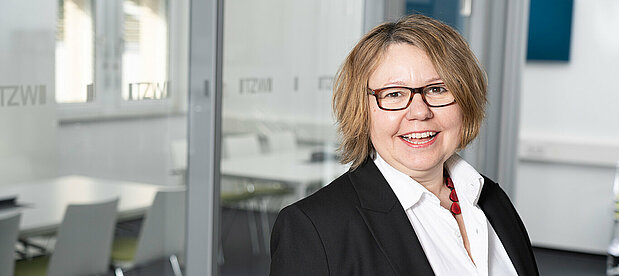LEDs (light-emitting diodes) have become environmentally friendly and cost efficient alternatives to previously used light sources in many areas of our lives. In the automotive industry or home lighting, they have become indispensable, mainly for reasons of space and efficiency. However, technical restrictions with regard to the quality of the source materials and high manufacturing costs make it difficult to replace existing technologies, the shorter the wavelength of the LEDs' emissions.
Due to the rapid technical progress of LEDs in the UVC range between 240 and 280 nanometers (nm), the interest in UV LEDs as an alternative to conventional mercury-containing systems for water treatment has increased in recent years. The German "Advanced UV for Life" consortium has set itself the goal of establishing LEDs with emission wavelengths in the UVC range for disinfecting air, water and technical surfaces. As a partner in this field of work, the TZW has been involved in advancing projects for drinking water disinfection for several years. A lot of preliminary work and basic research was necessary to be able to use UV-LEDs reliably for this purpose.
The Federal Ministry of Education and Research (BMBF) supported the basic project "GEntLED-UV" on the topic "UV-LED". Within this joint project, TZW worked on the subproject "Microbiological and technical characterisation of UV-LED disinfection modules" (MikTeCh). An LED functional module developed in the project was subjected to extensive investigations. Thus it could be determined how efficient different wavelengths act on undesired microorganisms in the water. Technical aspects such as service life and monitoring of the LED module in comparison to the established low and medium pressure mercury vapour lamps were also taken into account. The currently published volume 91 of the TZW publication series presents the work and results in detail.
Results from the "GEntLED-UV" project are now being used in the BMBF-funded follow-up project ELEDWa to ensure monitoring of the LED-based UV disinfection systems developed here. The results will also be made available to the Standardisation Committee 119-07-15-02-PK UV-Disinfection in order to establish the legal framework for a German test standard in the future. This would mean a significant innovation boost for the disinfection of water using UVC LEDs.
Publication series Volume 91: Characterisation of LED-based UV disinfection modules
Link to content and order
Link to project page Gentled UV
Link to Advanced UV for Life research consortium

![[Translate to English:] Prüfstelle-Produktprüfung_Teststand Test centre and product testing](/fileadmin/_processed_/0/9/csm_TZW-Karlsruhe_Pruefung_Geraete-Teststand_377188946c.jpg)























![[Translate to English:] [Translate to English:]](/fileadmin/_processed_/9/b/csm_UV_01_25763a5252.png)

